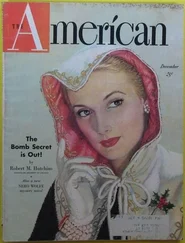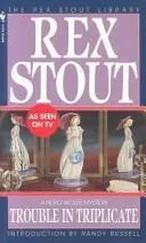“I don’t know. Shall I find out?”
“Yes, but there is no urgency. According to that report, they were dramatic in form and so contained nothing but dialogue, and would tell us next to nothing. I would like your opinion. Our job now is to find a person, man or woman: the person who in nineteen fifty-five read The Color of Passion , by Ellen Sturdevant, wrote a story with the title ‘There Is Only Love,’ incorporating its characters and plot and action, persuaded Alice Porter to use it as the basis for a claim of plagiarism, putting her name on it, the bait being presumably a share of the proceeds, and at an opportune moment somehow entered the summer home of Ellen Sturdevant and concealed the manuscript in a bureau drawer; who repeated the performance a year later with Hold Fast to All I Give You , by Richard Echols, using another accomplice, Simon Jacobs, changing only the method of establishing the existence and priority of the manuscript, suggested by the convenient circumstance that Jacobs had once sent a story to Echols’ agent and had it returned; who in nineteen fifty-seven again repeated the performance with Sacred or Profane , by Marjorie Lippin, using still another accomplice, Jane Ogilvy, following the same pattern, with the advantage of another convenient circumstance, the death of Marjorie Lippin. I would like your opinion. Is Kenneth Rennert that person?”
I shook my head. “I don’t know him well enough.”
“You have read that report.”
“Yeah.” I considered. “Offhand I would vote no. One will get you ten that he isn’t. From the general impression I got of him. Especially I doubt if he would monkey around with accomplices. A specific point: There is no evidence that he had any connection with writing or writers until he took a shot at television in nineteen fifty-five, so how did he get on to Alice Porter and Jacobs and Jane Ogilvy? Another one: If he used them on the first three, splitting the take with them, because he didn’t want to do it himself, why did he do it himself for the fourth and then go back to Alice Porter for the fifth?”
Wolfe nodded. “I agree. We are caught in our own noose. By discovering that those three stories were written by the same person we thought we had simplified the problem. It now appears that we have complicated it. If those four were merely cat’s-paws, where is the monkey? He is presumably a United States citizen. There are a hundred and seventy million of them.”
“It’s not that bad,” I averred. “He’s probably in the metropolitan area. Fifteen million. Not counting children, illiterates, millionaires, people in jail—”
Fritz had appeared at the door. “Lunch is ready, sir.”
“I have no appetite,” Wolfe growled.
It was off a little. He only ate four Creole fritters with cheese sauce instead of the usual five.
So he pulled a mutiny, the first one in three years. His mutinies are like other people’s. Other people mutiny against the Army or Navy or some other authority, but he mutinies against himself. It was his house and his office, and he had taken the job, but now he turned his back on it. His discovery that the three stories had all been written by one person, which I admit was fairly neat, had backfired on him, and he quit. Of course business is never mentioned at the table, but from his mood I knew he was smoldering, so when we returned to the office after lunch I asked politely whether there would be instructions then or later.
“Now,” he said. “You will see, at your convenience and theirs, Miss Porter, Miss Ogilvy, Mr. Jacobs, and Mr. Rennert. In whatever order you prefer. Make their acquaintance.”
I stayed polite. “It will be a pleasure to meet them. What are we to talk about?”
“Whatever occurs to you. I have never known you to be short of words.”
“How about bringing them, one at a time, to make your acquaintance?”
“No.”
“I see.” I stood and looked down at him. That annoys him because he has to tilt his head to look up. “It must be wonderful to be a genius. Like that singer, Doria Ricco, whenever anything goes wrong she just walks out. Then she has a press conference. Shall I set one up for six o’clock? You could tell them that a great artist like you can’t be expected to take a setback which any ordinary detective would only—”
“You will please keep your remarks to yourself.”
So it was a mutiny, not just a passing peeve. If he had merely barked at me “Shut up!” as he does two or three times a week, I would have known he would snap out of it in an hour or so and go to work, but that was bad. It would take time, no telling how much. And he left his chair, crossed to the bookshelves, took a volume of Shakespeare from the set, returned to his seat, leaned back, and opened the book. Bowing out not only from the case, but from the country and the century. I went. Leaving the room and the house, I walked to Ninth Avenue and flagged a taxi and told the driver 632 West 21st Street.
That building was a tenement not only as defined in the New York Tenement House Act, but also as what people usually mean when they say “tenement.” It was a dump. Having decided in the taxi how to start a conversation with Simon Jacobs, I found his name in the row, next to the top, and pressed the button. When the click sounded I pushed the door open, entered, and went to the stairs and started up, smelling garlic. The smell of garlic in Spanish sauce as Fritz makes it is a come-on, but in a tenement hall where it has been seeping into the plaster for fifty years it’s a pinch-nose. The best way is to pull in a long deep breath of it immediately and then your insides know it’s hopeless.
Three flights up a woman was standing at an open door near the front of the hall, with a boy, nine or ten, at her elbow. As I approached, the boy said, “Oh, it’s not Tommy,” and disappeared. I asked the woman, “Mrs. Jacobs?”
She nodded. She was a surprise. Simon Jacobs, now sixty-two, had been fifty-one when he had married in 1948, but she was no crone. There wasn’t a wrinkle showing, and there was no sign of gray in her soft brown hair. When I told her my name and I would like to speak with her husband, and she said he didn’t like to be disturbed when he was working and would I please tell her what I wanted, and I said I wasn’t selling anything, it was a business matter and might be to his advantage, she turned and went, leaving the door open. After a long moment he appeared, a good likeness to the photograph — thin and scrawny, with enough wrinkles for two, and, as Title House’s lawyer had said, hair like Mark Twain’s.
“Well, sir?” A thin high voice would have fitted him, but his was deep and full.
“My name’s Goodwin, Mr. Jacobs.”
“So my wife said.”
“I’m on the staff of a magazine with national circulation. I won’t name it until I find out if you’re interested in an idea we are considering. May I come in?”
“That depends. I’m right in the middle of a story. I don’t want to be rude, but what’s the idea?”
“Well — we thought we might ask you to do an article for us. About how it feels to have a story you have written stolen by another author and turned into a best-seller. We thought ‘Plot It Yourself’ might be a good title for it. I’d like to tell you how we think it might be handled, and we can discuss—”
He shut the door in my face. You may think I’m not much of a detective, that an experienced snoop should have had sense enough to have it blocked with his foot, but in the first place it was totally unexpected, and in the second place you don’t block a door unless you’re on the offensive. So I merely put my thumb to my nose and wiggled my fingers, turned, and made for the stairs. When I got to the sidewalk I took a long, deep breath to let my insides know they could relax. Then I walked to Tenth Avenue, stopped a taxi, and told the driver 37th and Lexington.
Читать дальше












